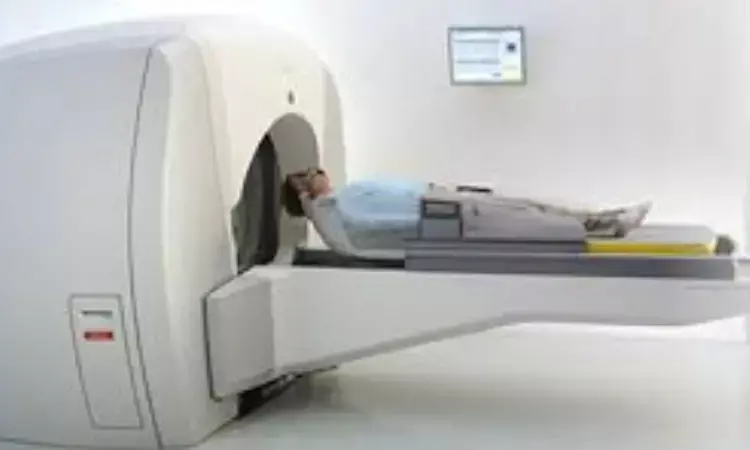- Home
- Medical news & Guidelines
- Anesthesiology
- Cardiology and CTVS
- Critical Care
- Dentistry
- Dermatology
- Diabetes and Endocrinology
- ENT
- Gastroenterology
- Medicine
- Nephrology
- Neurology
- Obstretics-Gynaecology
- Oncology
- Ophthalmology
- Orthopaedics
- Pediatrics-Neonatology
- Psychiatry
- Pulmonology
- Radiology
- Surgery
- Urology
- Laboratory Medicine
- Diet
- Nursing
- Paramedical
- Physiotherapy
- Health news
- Fact Check
- Bone Health Fact Check
- Brain Health Fact Check
- Cancer Related Fact Check
- Child Care Fact Check
- Dental and oral health fact check
- Diabetes and metabolic health fact check
- Diet and Nutrition Fact Check
- Eye and ENT Care Fact Check
- Fitness fact check
- Gut health fact check
- Heart health fact check
- Kidney health fact check
- Medical education fact check
- Men's health fact check
- Respiratory fact check
- Skin and hair care fact check
- Vaccine and Immunization fact check
- Women's health fact check
- AYUSH
- State News
- Andaman and Nicobar Islands
- Andhra Pradesh
- Arunachal Pradesh
- Assam
- Bihar
- Chandigarh
- Chattisgarh
- Dadra and Nagar Haveli
- Daman and Diu
- Delhi
- Goa
- Gujarat
- Haryana
- Himachal Pradesh
- Jammu & Kashmir
- Jharkhand
- Karnataka
- Kerala
- Ladakh
- Lakshadweep
- Madhya Pradesh
- Maharashtra
- Manipur
- Meghalaya
- Mizoram
- Nagaland
- Odisha
- Puducherry
- Punjab
- Rajasthan
- Sikkim
- Tamil Nadu
- Telangana
- Tripura
- Uttar Pradesh
- Uttrakhand
- West Bengal
- Medical Education
- Industry
Is Gamma Knife Radiosurgery Safe and Effective in Management of Trigeminal Neuralgia?

Gamma Knife Radiosurgery has been found as a safe and effective modality of treatment for Trigeminal Neuralgia without any major complications. Both short-term and long-term efficacies are excellent.
Trigeminal neuralgia (TN) is a common neuropathic facial pain characterized by paroxysmal lancinating pain lasting a few seconds, often triggered by sensory stimuli, confined to the distribution of one or more branches of the trigeminal nerve. It is usually unilateral and described by patients as the worst pain experienced. Few cases of bilateral TN have been reported with typical clinical profiles. Several attempts have been made to classify TN for uniformity and easy clinical assessment. The diagnosis is clinical, and imaging may show vascular compression of the root entry zone of the trigeminal nerve or any other pathological lesions like a tumor, cyst, vascular malformation, etc.
Medical management is the first line of care for patients with TN, and carbamazepine is the drug of choice, used alone or in combination with other drugs. The best management for patients with refractory TN or those intolerant to the side effects of drugs has been a subject of discussion. Options available include peripheral nerve ablation, percutaneous trigeminal rhizotomy, radiofrequency thermocoagulation (RFTC), glycerol rhizotomy, balloon compression, microvascular decompression (MVD), and stereotactic radiosurgery (SRS).
Gamma knife radiosurgery (GKRS) has been an established option in the management of refractory TN, based on its noninvasiveness and targeted radiation dose delivery, with minimal injury to the surrounding structures. Radiation dose of 70–90 Gy targeting the root entry zone of the trigeminal nerve has been recommended for pain control with low-risk profile in TN.
The safety and efficacy of GKRS in the management of refractory TN were assessed in a retrospective study by Okunlola et al in a recent study published in Neurology India.
The retrospective arm of our study (short-term efficacy) had 23 patients (15%) pain free without medications and 120 patients (78%) with >50% pain relief with medications at 6 months. In the cross-sectional arm (long-term efficacy), we found that 51 patients (85%) had a BNI score of I–IIIb with a median follow-up duration of 6.2 years.
The overall recurrence rate of 9.2% seen in our study is similar to previous reports.[17] In a meta-analysis of SRS studies, a median recurrence rate with GKRS studies was found to be 24%, whereas with cyberknife and LINAC, it was 27.2 and 29%, respectively.[34] Radiation injury to the brain stem and cerebellum is very rare, and when it occurred, it is usually mild with no significant long-term sequelae.[16] Facial numbness is the most common late complication of the GKRS, but this usually conferred long-term pain control in the affected patients.[15],[21] Repeat GKRS has been employed in the management of recurrent TN after initial remission with satisfactory response and safety profile.[15],[21] None of the patients in the post-GKRS cohort in our study underwent repeat GKRS. Though MVD still remains the first choice of treatment in refractory TN, with better immediate and long-term outcomes, GKRS is a close second with a unique safety profile.[36]
GKRS is a safe and effective modality of treatment for refractory TN, especially in the elderly and patients with serious comorbidities. The majority of the patients had satisfactory outcomes in terms of long-term pain relief.
Reference:
Safety and Efficacy of Gamma Knife Radiosurgery for the Management of Trigeminal Neuralgia: A Retrospective and Cross-Sectional Study, Abiodun Okunlola, Sanjeev Pattankar, Anshu Warade, Alay Khandhar, Varun Mistry, Basant K Misra, Neurology India, DOI: 10.4103/0028-3886.373623
MBBS, DrNB Neurosurgery
Krishna Shah, MBBS, DrNB Neurosurgery. She did her MBBS from GMC, Jamnagar, and there after did direct 6 Year DrNB Neurosurgery from Sir Ganga Ram Hospital, Delhi. Her interests lie in Brain and Spine surgery, Neurological disorders, minimally invasive surgeries, Endoscopic brain and spine procedures, as well as research.
Dr Kamal Kant Kohli-MBBS, DTCD- a chest specialist with more than 30 years of practice and a flair for writing clinical articles, Dr Kamal Kant Kohli joined Medical Dialogues as a Chief Editor of Medical News. Besides writing articles, as an editor, he proofreads and verifies all the medical content published on Medical Dialogues including those coming from journals, studies,medical conferences,guidelines etc. Email: drkohli@medicaldialogues.in. Contact no. 011-43720751


